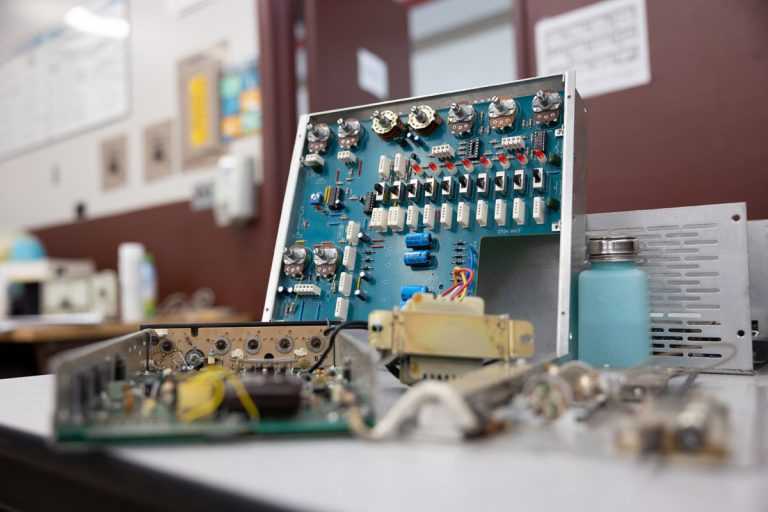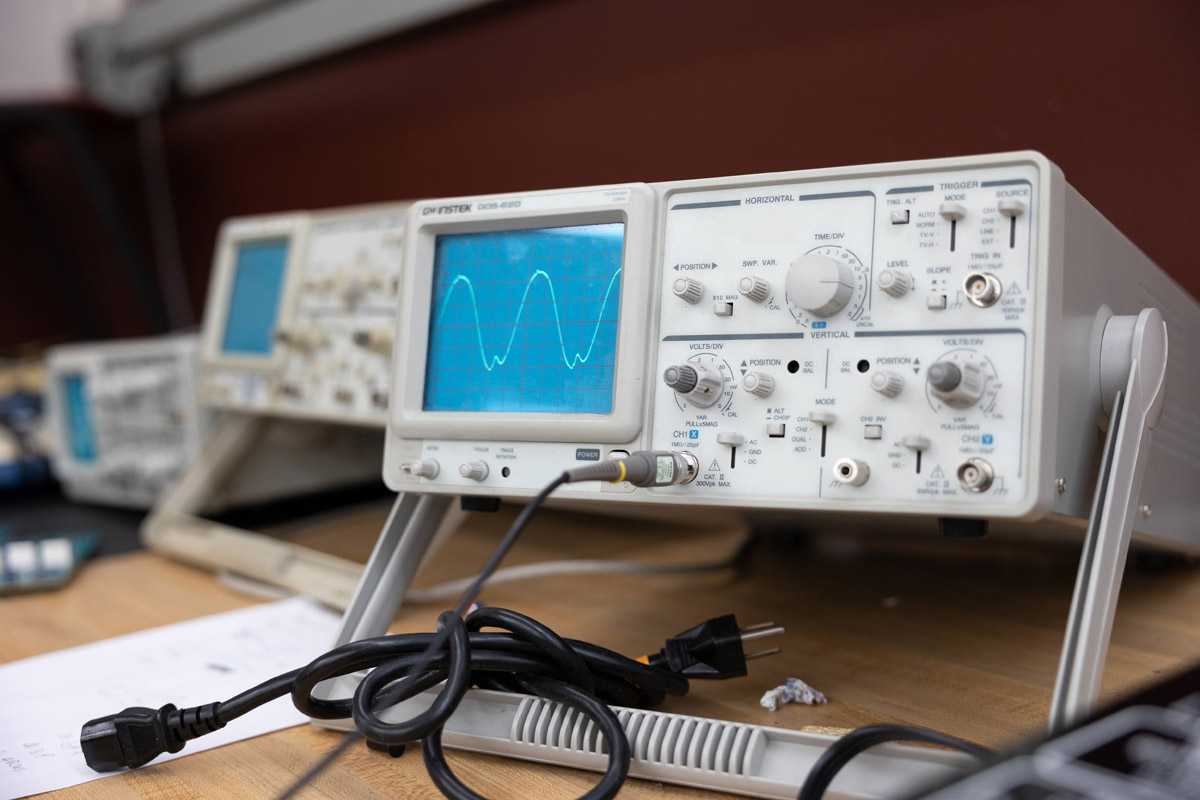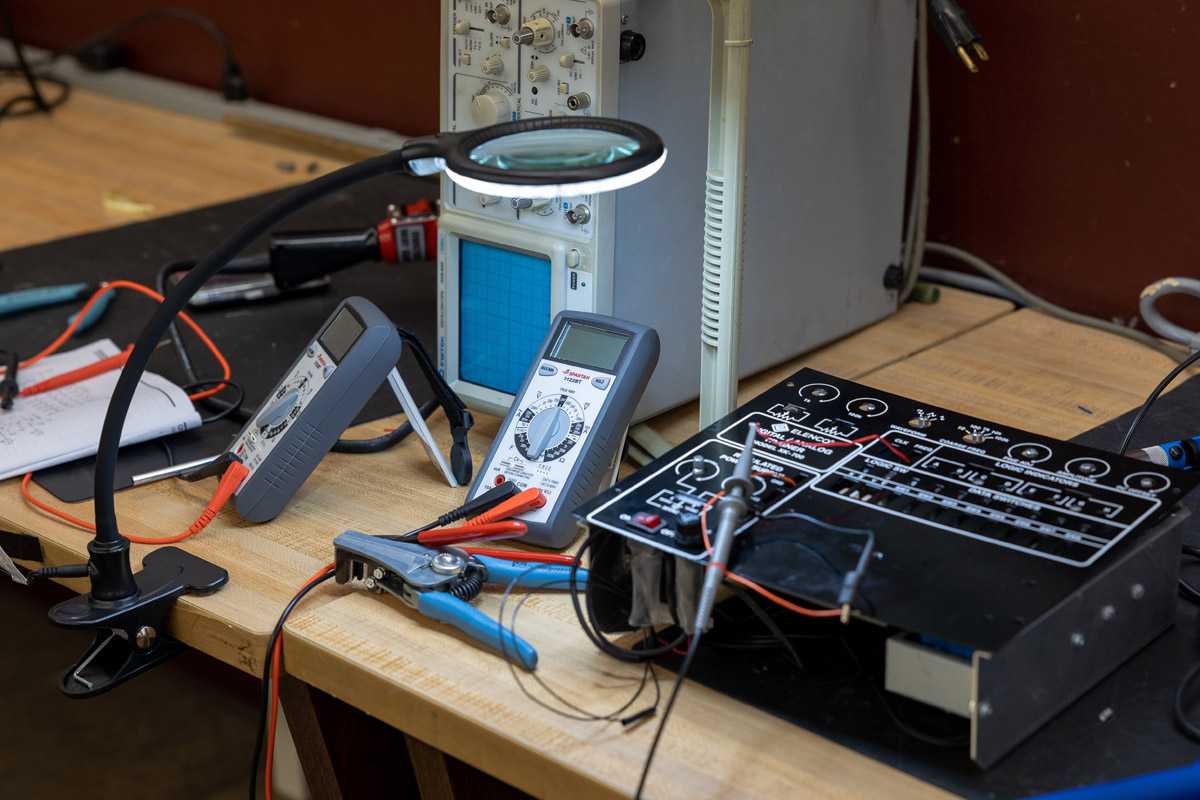

Spartan College of Aeronautics and Technology is a prominent voice in the aviation space. These blogs are for informational purposes only and are meant to spark discussions within the aviation industry on a variety of topics.
When it comes to pursuing education beyond high school, there are a myriad of routes that people can take. Some people choose to study a trade and begin their work paths. Others attend a four-year university or college to earn their bachelor's, master's, and degrees beyond those. For some people, they want a combination of both those educational options: to first train hands-on in a field, or start by getting their associate’s degree. Then, they may choose to go on to study more analytical, management skills required for leadership in their field, which can help them add business leadership to their already honed craft.
For those students, a good option might be earning a Bachelor of Science in Technology Management (BSTM) —particularly if you have studied and earned a diploma or associates in mechatronics engineering, worked in the field, and now you are looking to advance your career in the mechatronics field.
If you work in Mechatronics Engineering and you want to increase your business know-how, one of the best educational paths you can pursue is a BSTM. If you go to a school where you can earn a Bachelor of Science in Technology to sharpen your business acumen, you can gain access to management training, which will augment your previous hands-on, in-field experience—and that will allow you to be both a business leader and expert technician.
If you are interested in Mechatronics Engineering, or you want to learn more about what Mechatronics is in general, read on. You can gain an understanding of what the industry is, know what kind of careers people who study it can have after getting their associates degree or diploma, learn how to train in the industry, and gather information about where you can go to earn your BSTM in the field.

Originally, mechatronics was intended to simply be a combination of mechanics and electronics, however, as the complexity of technical systems continued to change, the definition had been broadened to include more technical areas. Mechatronics engineering is a somewhat new field. For that reason, many people are not familiar with the basics of the industry. In short, mechatronics is a field where people utilize technology to make smarter, better systems. Mechatronics engineering is a useful skill to have in a wide range of industries — and it is actually at the intersection of a variety of fields, including mechanics, computing, manufacturing, electronics, and more. People who specialize in mechatronics engineering have a base knowledge of multiple types of engineering (like electrical systems, biochemical, and more) to help individuals and organizations use smarter technology and better-designed systems to optimize their operations. Mechatronics engineers are experts in ensuring that organizations are using the most powerful and efficient technology possible.
Mechatronics engineers can have a wide variety of jobs, whether they work in construction, health, manufacturing, and beyond. Essentially, what a mechatronics engineer does is bring together different system design components to ensure that entire systems are optimized. They can analyze a company's way of working and ensure that processes are working as smoothly as possible.
To work as a Mechatronics Engineer, professionals need to understand a variety of different types of engineering. They should also understand smart technology, robots, automation, and system design, as well as the latest technology that can help streamline and optimize processes. Mechatronics engineers work to connect disparate teams without organization or project to help ensure they are communicating and coordinating seamlessly. If there are issues in a system, mechatronics engineers should be able to quickly identify those problems, understand why they are happening, and then propose a solution that solves the problem and makes the entire process smoother, faster, more effective, and more efficient.
Sometimes, mechatronics engineers are used to bringing companies and systems more up to date. In our digital world, if companies are using analog processes or doing most things by hand, they may be operating too slowly or inefficiently. For that reason, it can pay off to bring a mechatronics engineer in to help update systems and technology. Mechatronics engineers can help you in your process of computerizing systems and business operations. If the leaders at a company don't have the technical know-how to automate the way things work or implement new technology and devices, they'll want to rely on a mechatronics engineer to understand:
When mechatronics engineers work as system designers or engineers to help people bring their systems up to date, they'll develop computer-driven solutions, utilize automation, and ensure that the systems businesses are adopting are the smartest and most cost-effective ones available.
It's possible to train in mechatronics engineering for a certification and job readiness. If you graduate with a degree in mechatronics engineering, it will ensure that you can start on a path working in mechatronics engineering in the field. However, if you return to school to get a Bachelor of Science in Technology Management (BSTM), then you will garner more intensive and comprehensive education. When you get a BSTM, you learn a whole lot more than you would during your work to earn an associate's degree. Here are some ways that people who go on to earn a BSTM after getting a that initial associate’s degree in Mechatronics Engineering can benefit from earning a higher degree.

People who earn this type of degree don't bring their technology and science experience in their tech field. They study business, and management. This ensures that a mechatronics engineer with a BSTM is prepared to be an entry-level leader in their field
People who study for their BSTM must take classes in Quantitative Reasoning in order to get their degree. This can help sharpen your math and accounting skills overall and make you a generally better data analyst, money manager, and financial planner.
Communication studies is part of earning your BSTM degree. Once you graduate, you'll be a better communicator both in writing and speaking. This can help you in business, both when communicating with teams and when communicating business plans and ideas with clients and colleagues.
Ready to take the next step toward earning a BSTM degree? Decide whether you want to study mechatronics engineering in person or pursue your path online from the comfort of your own desk or home.
If you believe that you are ready to train in the field of aviation and technology management, and want to find out how to qualify for the BSTM program at Spartan College of Aeronautics and Technology, contact us today. Spartan can answer any questions about the process of enrolling, don't hesitate to reach out to us. We'd be happy to answer any questions you have about the process or how you can get started earning your degree.
Spartan College offers programs geared toward career-oriented training in the aviation industry. Click here to learn more about our programs.
Affiliate Partner Program | Jobs at Spartan | Privacy Policy | Opt-out Policy | Privacy Notice - California Residents| Notice of Non-Discrimination | Website Accessibility Help | Transparency in Coverage Act
© 2024 SPARTAN COLLEGE OF AERONAUTICS AND TECHNOLOGY. ALL RIGHTS RESERVED.